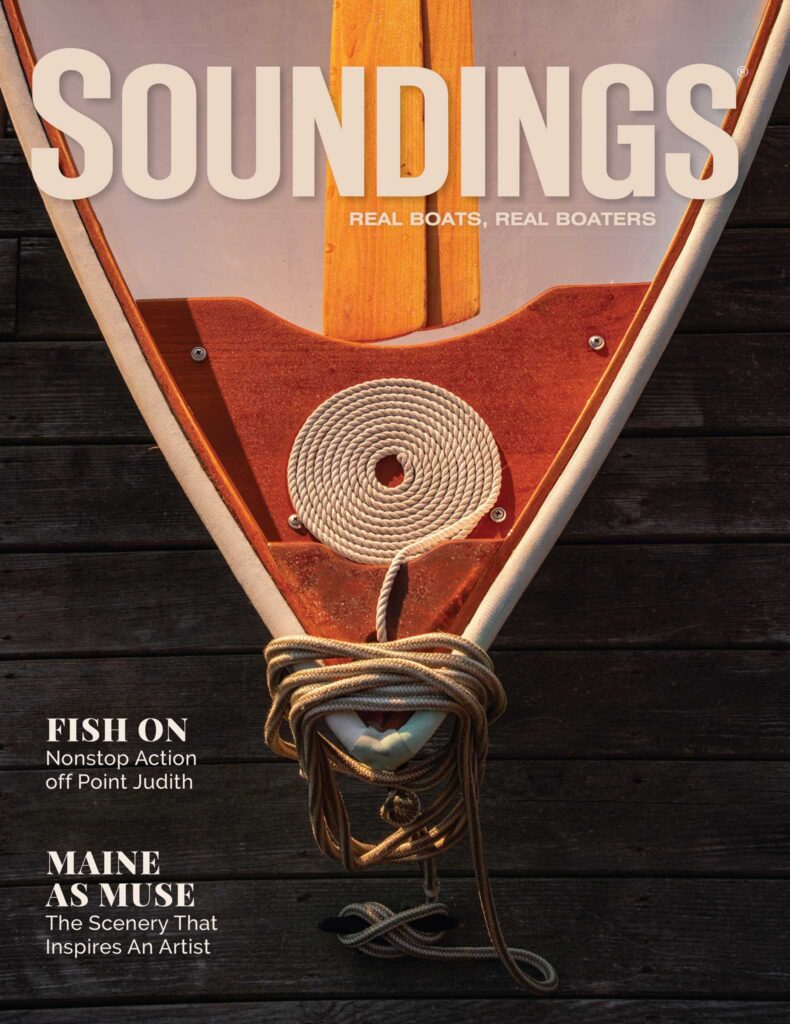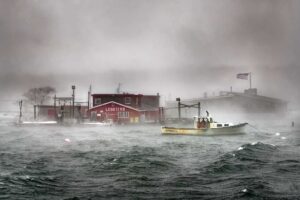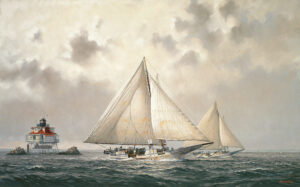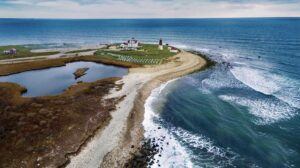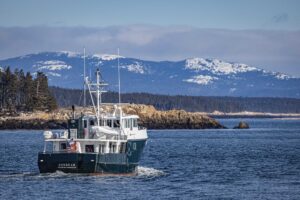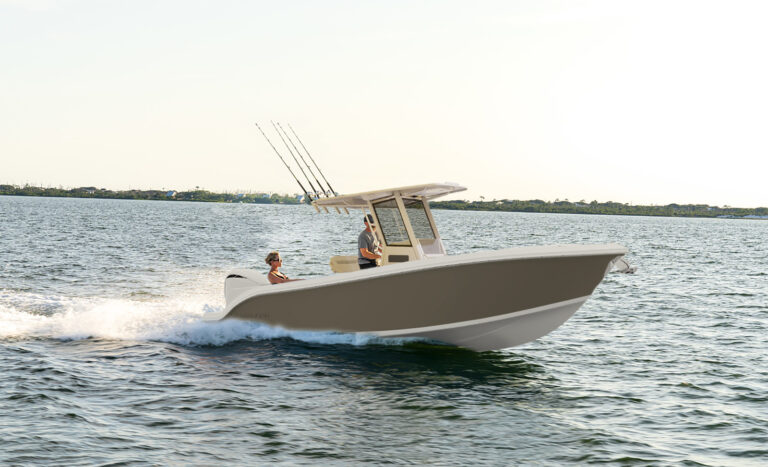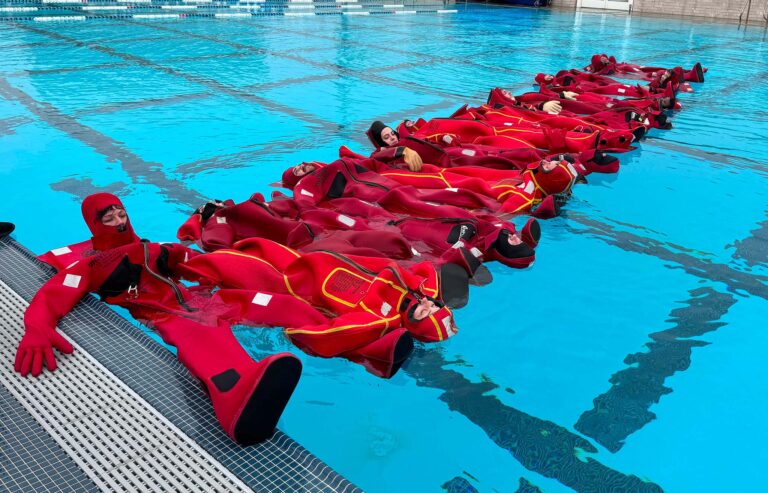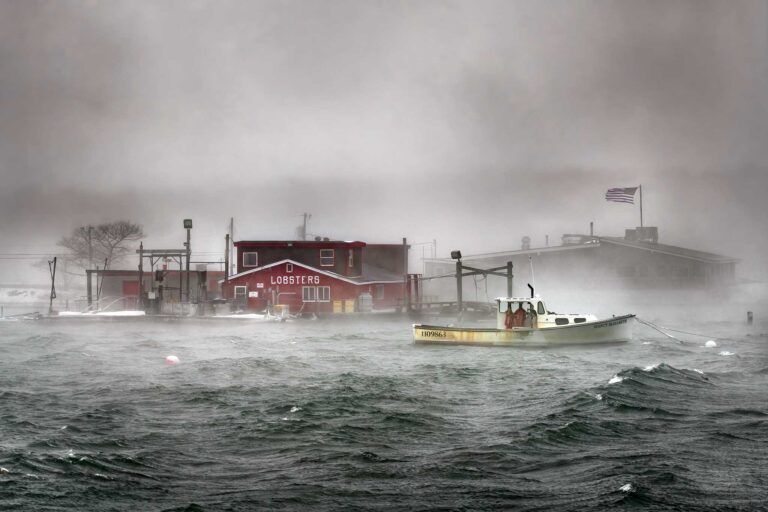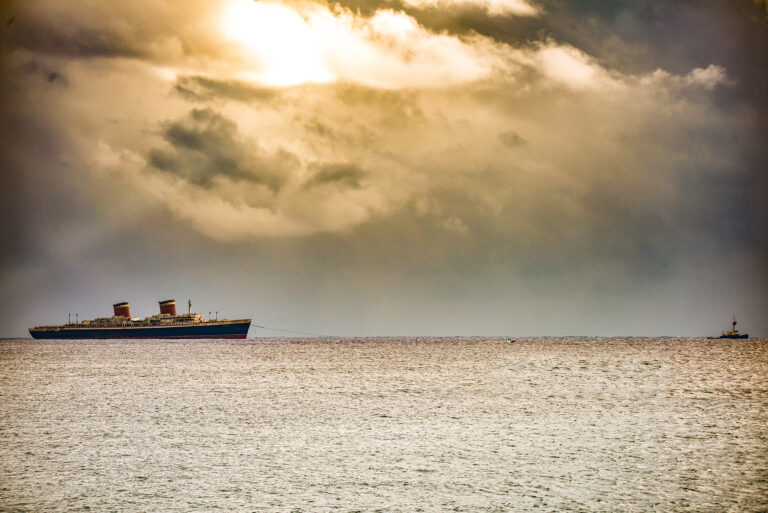Peter Goldsmith’s first sailboat race to Cuba was illegal. The Key West sailmaker and Michele Geslin organized their first race from Key West to Varadero, Cuba, in 1997. The event, which drew 40 boats, violated the 1961 embargo on trade with Cuba and the prohibition on travel to the island if it involved spending money.

“The government found out about it right away and sent a cease-and-desist order,” Goldsmith says.
Goldsmith and Geslin — his partner of 23 years, now deceased — would go on to organize six more Key West-to-Cuba races. They would become known as the Conch Republic Cup, named after several races across the Straits of Florida in the 1970s. Before each race, the couple received a cease-and-desist order, but enforcement was lax — Goldsmith says the government had no money to seriously pursue embargo scofflaws — and they just kept racing.
In 2003, matters came to a head. Customs agents swarmed the skippers’ meeting at Kelly’s bar in Key West. The armed agents warned skippers and crews that their boats could be confiscated and took photos of entries as they motored to the starting line. The agents were waiting as the fleet returned a week later and boarded many of the boats, confiscating cameras, GPS systems and charts.
Prosecutors secured a grand jury indictment of “trading with the enemy” against Goldsmith and Geslin. The couple spent an hour and a half in custody at the federal courthouse in Key West, then were released without bond. At a federal trial later in Miami the judge tabled the case, giving prosecutors time to present better evidence. The government never returned to court.
Goldsmith says he holds no grudges. “We never lost business. We never went to jail. It was nothing, really,” he says.
So it’s with a sense that he was just a few years ahead of his time that Goldsmith and business partner Jeff Drechsler are organizing the eighth edition of the Conch Republic Cup in January (conchrepublic cup.com), and this one will be perfectly legal. “It feels great,” he says of the race’s revival. “It has been a personal goal of mine to do this legitimately and legally,” without worrying about arrest or confiscation of his boat.
Starting with a welcoming reception Jan. 27 in Key West, the Conch Republic Cup will comprise a series of races: Key West to Varadero, buoy racing off Varadero and a Varadero-to-Havana race, followed by a boat parade along Havana’s Malecón — the city’s seawall — and the last race from Havana to Key West. Goldsmith expects to draw the restless and curious, as well as serious entries from Key West Race Week earlier in the month.
This year has seen a revival of racing and other boat travel to Cuba as the Obama administration pursues a policy of rapprochement with the Castros. The administration began easing travel restrictions in January, and on Sept. 18 it issued rules streamlining licensing for U.S. vessels seeking to visit Cuba, including recreational boats.
Race committees didn’t have to be asked twice whether they wanted to take advantage of the new rules. Pensacola Yacht Club had a rally and race scheduled from Pensacola, Florida, to Marina Hemingway near Havana on Oct. 31. This first Pensacola-Havana race was to be mainly for “seaworthy cruising sailboats” and serve as an “initial trial balloon race to Cuba to consider the feasibility of a recurring series,” according to its website (cubarace2015.com). The Lake Kegonsa Sailing Club in Stoughton, Wisconsin, and Varadaro Yacht Club in Cuba were promoting a Dec. 3 Pilar Regatta from Key West to Varadero (regattadecuba.com). The club expected to draw entries from boats arriving in town for Key West Race Week.
The Sarasota Yacht Club has scheduled a race from Sarasota, Florida, to Havana for April 2-12, 2016, for sailboats and powerboats (sarasotayachtclub.org). “We have some entries already,” says organizer Alice Petrat.

Petrat ran a trial race from Key West to Havana this past May that drew four boats and 19 crewmembers. She expects more entries in April. “I think it’s going to be a great destination,” she says.
On arrival in Cuba in May, Cuban customs officials asked whether she wanted them to stamp her passport. “Absolutely,” she told them. “We’re here legally.”
Under the new rules, anyone traveling to Cuba under one of 12 categories of permitted travel can do so on their private boat under general licenses from the Treasury Department’s Office of Foreign Asset Control and the Commerce Department’s Bureau of Industry and Security. That means boat owners no longer have to submit an application to OFAC for a license to travel to Cuba or to BIS for an export license to take their boat to Cuba. The licenses authorize a boat to be in Cuban waters for 14 days.
“These have been the two main obstacles to traveling to Cuba by boat,” says Paul Madden, CEO of Madden Yachts (private-yacht.net), a Palm Beach, Florida, yacht brokerage, charter business and project management company that manages yacht charters worldwide, including charters from Florida to Cuba. “Until [Sept. 18] these two documents were pretty hard to get hold of,” he says.
Travelers by boat still need to secure a Coast Guard permit to enter Cuban territorial waters, and general tourism still is not allowed. “The regulations are clearly against the kind of tourism where you lie on the beach all day and go to the clubs all night,” Madden says.
However, they allow people-to-people exchanges under the direction of a U.S.-based organization involved in education, even if it’s not academic — history, culture, art, ecology, sports and religion, for example. Treasury Department guidance says the travel should increase contact between Americans and Cubans or support Cuban civil society.
The 12 permitted categories of travel are:
• family visits
• government business
• journalism
• professional research and meetings
• educational activities
• religious activities
• participation in public performances, clinics, workshops, exhibitions, sports and other competitions
• support for the Cuban people
• humanitarian projects
• work of private foundations, research or educational institutes
• exportation, importation or transmission of information
• authorized export transactions
“Just about everybody can fall into one of these 12 categories,” Madden says. And the general licenses are a self-declaration. “You’re issuing a [permit] to yourself.” He says the rules changes open a door to Cuba “big enough for a truck to drive through.”
George Bellenger, a Key West charter captain, is one of the pioneers in this brave new world of running sanctioned races to Cuba. Bellenger, who has done some consulting for other race organizations, helping them navigate federal regulations and meet Cuban contacts, put together The Havana Challenge, a race in May across the Straits of Florida in Hobie 16s. The event drew five Hobies and 14 support boats, and included a race against Cuba’s sailing team off Havana’s Malecón and a boat parade in the harbor.
Bellenger is planning another race, the Havana Thunder Challenge on Nov. 16, for powerboats (havanachallenge.com/htc). In addition to racing from Key West to Havana, the boats were to be on display in a public “boat show” at Marina Hemingway, participate in a boat parade along the Malecón and showcase their speed in performance demonstrations. For next year, he’s working on four races to Cuba — beach cat, tall ship, powerboat and high-tech catamaran races — with maritime heritage themes and people-to-people exchanges.

As boat travel to Cuba builds, “We’re going to see more business here in the Keys,” he predicts, in particular the marinas, parts stores and fuel docks. “I can’t see how they are not going to see their business increase.”
Meanwhile, Madden expects his Cuba charter business (cuba-yacht.com) to grow. He has had 10 crewed yachts under license from OFAC and BIS for guided cultural and historical excursions in Cuba. Now he can expand his fleet under the new rules’ general license provisions. Until now, his clients have been mainly affluent older Americans who want to tour Cuba; learn something about its art, history and culture; and like the idea of overnighting on a yacht in a country where the number of first-rate hotel rooms is still limited.
Madden expects a flood of business leaders visiting Cuba to make contacts and explore opportunities as barriers to commerce begin to fall. He thinks CEOs and their staffs would find a charter yacht a good base of operations for an exploratory visit.
Also a manager for Edgewater Resources, a waterfront development company, Madden has himself been to Cuba by boat with a group to evaluate marina construction opportunities. Impressed with a 1,100-slip marina in Varadero, he says, “That shows you the scale and appetite the Cubans have for upgrading their infrastructure for yachts. They could use 20 more marinas like that right away.”
Goldsmith, who tried to open Cuba up on his own 18 years ago, says the business opportunities there won’t be uppermost in his mind when the gun sounds for the 5 p.m. start of the Conch Republic Cup in January. “I’ll be racing,” he says. “I’m doing this just for fun and to have a good time.” Legally.
This article originally appeared in the December 2015 issue.

